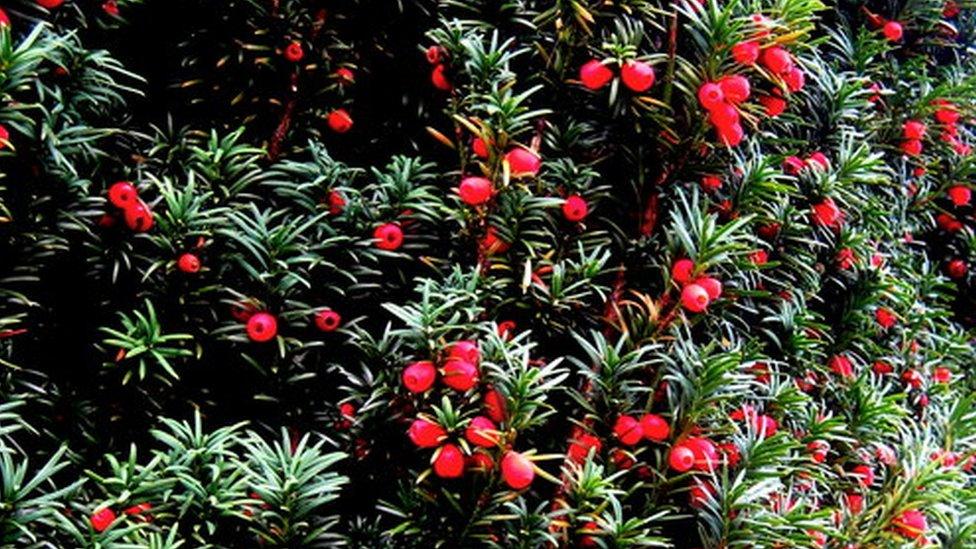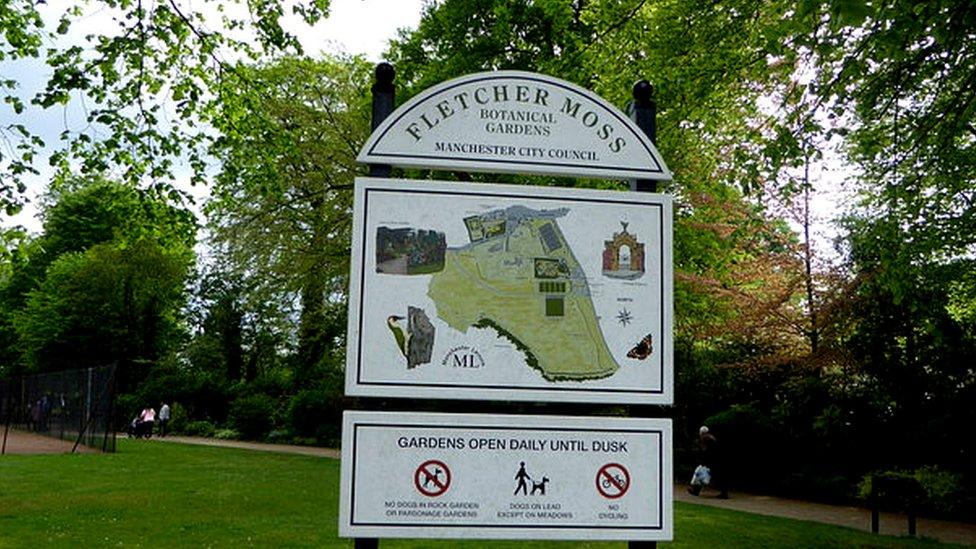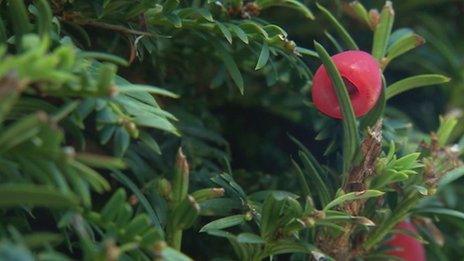Boy, 14, died after eating parts of poisonous yew tree - inquest
- Published

The coroner was concerned about the lack of warning signs over yew tree berries, which contain poisonous seeds
A coroner has warned against eating wild berries and leaves after a boy who ate some in a park collapsed and died.
Benn Curran-Nicholls, 14, ingested yew tree berries, which contain poisonous seeds, and its toxic leaves on a walk in Manchester's Fletcher Moss Park.
At the inquest, coroner Andrew Bridgman criticised the council for not issuing a public health warning following his death, saying it was "illogical".
He said there should also be signs in the park saying the tree was poisonous.
Mr Bridgman concluded the teenager had died by misadventure.
The UK Health Security Agency (UKHSA) said it was supporting Manchester City Council after this tragic case and it would "respond to the coroner's recommendations in due course".
The autistic teenager consumed the berries and leaves from a tree he liked to climb on his daily walks in the park on 18 September 2022 and died the following day in Royal Manchester Children's Hospital.
His father was unaware that the yew tree was toxic and the coroner said the local authority's neighbourhood manager for environmental health was also unaware that they were poisonous.
According to the Royal Horticultural Society, external, the flesh of yew berries is not toxic, but all other parts of the tree, including the seeds inside the fruit, are poisonous.
Mr Bridgman said the boy and his family had moved to Didsbury from Australia in June 2022.
He said the medical cause of Benn's death was "refractory cardiogenic shock due to taxane alkaloid poisoning, following ingestion of yew tree berries and leaves".
Mr Bridgman said two concerns from the boy's death had prompted him to issue a prevention of future deaths report, external which he had sent to the council.

Benn Curran-Nicholls liked to walk in Fletcher Moss Park
Mr Bridgman said yew tree poisoning was rare, but a number of cases had been reported.
The inquest heard the council had not publicised the risks of eating yew tree berries due to concerns over suicide attempts and because it would be telling people not to consume something they "wouldn't usually be eating".
Mr Bridgman dismissed this saying: "The reason for not sending out comms messages for educational/warning and informational purposes... is illogical.
"Berries and the like might be attractive to young children who would not recognise the dangers and risks of even illness, let alone death."
His other concern centred on the lack of notices in the park "warning of the poisonous nature of the yew tree, and risks of eating its berries and leaves".
A spokesman for Manchester City Council said: "Our thoughts are with the family in this heartbreaking case.
"It's a matter which we are taking extremely seriously and we will continue to take advice on best practice and respond to the coroner's recommendations in due course."
A representative of UKHSA said: "UKHSA continues to support colleagues at Manchester City Council regarding this tragic case and we will respond to the coroner's recommendations in due course."

Why not follow BBC North West on Facebook, external, X, external and Instagram, external? You can also send story ideas to northwest.newsonline@bbc.co.uk
Related topics
- Published7 February 2014
